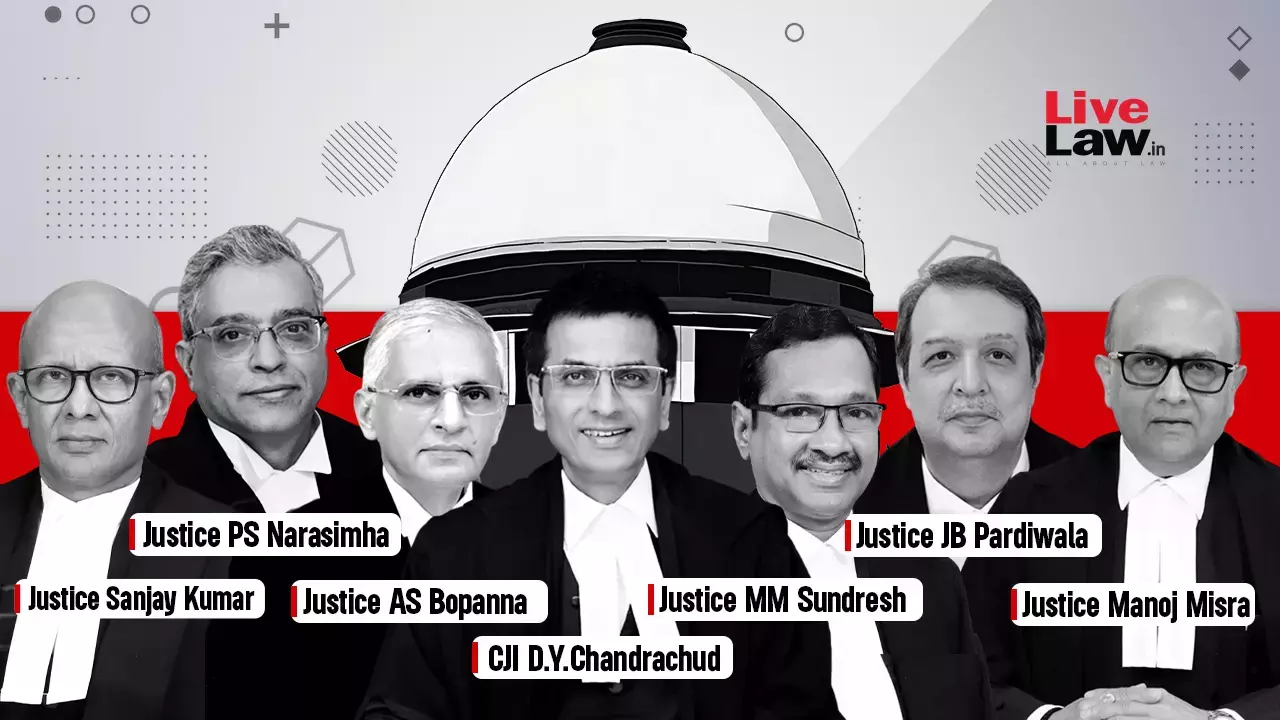Can MPs/MLAs Taking Bribe For Vote/Speech In Legislature Claim Immunity? Supreme Court 7-Judge Bench Reserves Verdict
Awstika Das
5 Oct 2023 9:12 PM IST

Next Story
5 Oct 2023 9:12 PM IST
A constitution bench of the Supreme Court on Thursday reserved its verdict on whether members of parliament and legislative assemblies could claim immunity under Articles 105(2) and 194(2) of the Constitution for receiving a bribe in contemplation of a vote or speech in the legislature.A seven-judge bench of Chief Justice of India DY Chandrachud, and Justices AS Bopanna, MM Sundresh,...
